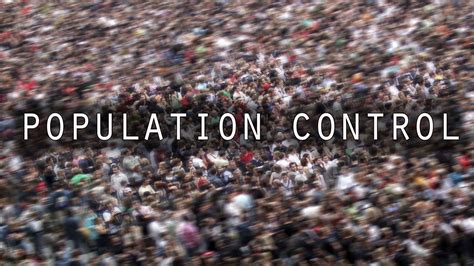History of Population Control

“It’s just a conspiracy theory!”
Or is it?
In 1944, King George VI created the Royal Commission on Population “to consider what measures should be taken in the national interest to influence the future trend of population.” The commission found that Britain was gravely threatened by population growth in its colonies, since “a populous country has decided advantages over a sparsely-populated one for industrial production.” The combined effects of increasing population and industrialization in its colonies, it warned, “might be decisive in its effects on the prestige and influence of the West,” especially effecting “military strength and security.”
Decades later, US Secretary of State Henry Kissinger published the National Security Study Memorandum 200: Implications of Worldwide Population Growth for U.S. Security and Overseas Interests. NSSM 200 outlined a covert plan to reduce population growth in Lesser Developed Countries (LDCs) through birth control, and also, implicitly, war and famine:
Key points in the Kissinger Report:
(a) actions to accommodate continued population growth up to 6 billions by the mid-21st century without massive starvation or total frustration of developmental hopes; and
(b) actions to keep the ultimate level as close as possible to 8 billions rather than permitting it to reach 10 billions, 13 billions, or more
Note: we surpassed 8 billion in 2022.
In his infamous 2010 TED Talk, Bill Gates said, “Now if we do a really good job on new vaccines, healthcare, and reproductive services, we can lower [the projected population] by 10-15 percent.”
Here’s Jane Goodall speaking at the World Economic Forum, saying that we need to reduce the population by 90%:
WEF Yuval Noah Harari recently said, “Now, fast forward to the early 21st century when we just don’t need the vast majority of the population,” he concluded, “because the future is about developing more and more sophisticated technology, like artificial intelligence [and] bioengineering, Most people don’t contribute anything to that, except perhaps for their data, and whatever people are still doing which is useful, these technologies increasingly will make redundant and will make it possible to replace the people.”








